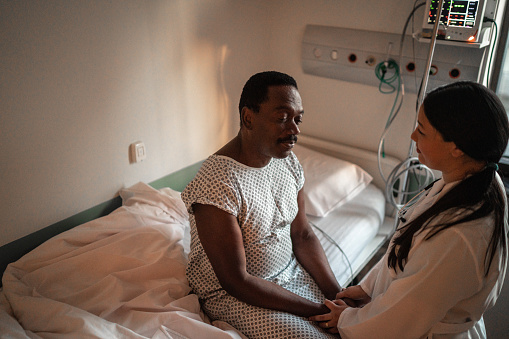A new study finds that Black people incur a higher risk of colorectal cancer due to lack of screening, according to a study published in the Journal of Clinical Gastroenterology.
It’s known that Black people have a higher risk of colorectal cancer than white people, but this risk is likely not due to genetics, according to the researchers.
In this study, led by the the U.S. Department of Veterans Affairs, Regenstrief Institute and Indiana University School of Medicine, researchers assessed more than 90,000 veterans who underwent a colonoscopy at 18 VA facilities over the duration of seven years.
The researchers observed in the overall population that Black veterans had a higher risk of colorectal cancer. However, in a subgroup of people who got routine screenings, the risk was equal for Black patients and white patients, which suggests that the difference is not biological, they noted. Overall, the study found that colorectal cancer risk increases with age, independent of race.
What are the Next Steps?
“The next step is determining what is behind this increased risk,” said lead author Thomas Imperiale, M.D., Regenstrief Institute research scientist, VA investigator and professor of gastroenterology and hepatology at IU School of Medicine via a press release about the. “Lifestyle and healthcare-related behaviors may explain some of the difference.”
“It could be that Black patients are not getting screened, as suggested by guidelines, or that they respond to early symptoms differently, perhaps delaying seeking treatment for symptoms of colorectal cancer longer than white patients do,” said Dr. Imperiale. “Screening is one of the most powerful tools for preventing or detecting colorectal cancer early, when it is curable.”
Regenstrief Research Scientist NiCole Keith, PhD, who was not involved in this project, studies health disparities, and had the following to say: “Often, Black patients do not have access to screening or the ability to attend an appointment. Historically, this population has also had trust issues with healthcare, all of which could contribute to these disparities. We need to develop a way to make these important tests more accessible to everyone and improve trust in healthcare.”
Credit: Original article published here.










